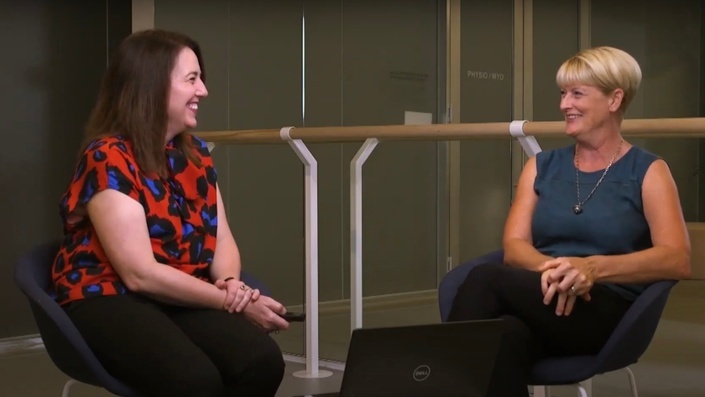Welcome to my new blog series called 'Mick's 2 Cents!'
Every 2 weeks I'm going to chime in and give my hot takes on what was discussed recently on my good mate Randall Cooper's Journal Club Podcast, and how physios & exercise professionals can easily apply the research discussed in their everyday practice.
In the first of his Podcast series, Randall sat down and talked with Dr Rebecca Robinson, a consultant physician in sport & exercise medicine from the United Kingdom, on the hot topic of the effects of long COVID.
Rebecca was involved in a study that was published in the BJSM that looked at symptoms and return to sport in Great British Olympic & Paralympic athletes as they geared up for the Tokyo Summer Olympic Games.
The study looked at those athletes who acquired COVID, with the data looking at the period between February & March 2020.
There were a few things that the study revealed, but the key finding I want to give my 2 cents on were that long COVID affected nearly 1/4 of the athletes (out of training 28+ days); with fatigue being a consistent long term complaint.
Herein lies 3 big issues that we need to be aware of when we're dealing with athletes who currently have COVID, or have had recently had COVID.
Firstly, 1 in 4 athletes in this study developed long COVID; which is 2-2.5x higher than the general population according to Rebecca. So we need to keep a high index of suspicion that our elite athletes may continue to have lingering effects of COVID well after their last negative PCR test.
Secondly, those that have had lingering symptoms and have had been out of full unrestricted training for a long time (28+ days), its important we don't try to "make up for lost time" by aggressively re-loading the athlete, but rather a gradual and progressive approach is required.
Additionally, Rebecca also mentioned that the inflammatory effects of COVID commonly affect the heart (and lungs), and careful return to training under the guidance of a medical doctor, with close heart rate monitoring required for a period of time.

Thirdly and lastly, we need to be alert to the "fatigued athlete". In this current environment, naturally, long COVID would be assumed for an elite athlete complaining of fatigue who has recently had COVID, however we also need to consider other issues such as over-training, inadequate sleep & recovery, inadequate nutrition, mood disorders, low iron levels and other medical conditions; and as such, referral to doctor or sports doctor required.
The good news is that since this study was published in July 2020, and with excellent vaccines readily available, Rebecca has observed that with the new Omicron variant, athletes who are triple vaccinated are still getting covid, but they're coming back to training and sport quicker than the first wave of Alpha & Delta.
To wrap up my first 2 cents blog - I hope you enjoyed it by the way - If we can remember these 3 R's we'll be doing our jobs well...
1) RECOGNISE than long COVID is a real entity that we need to be conscious of.
2) RE-LOAD athletes carefully and under medical supervision.
3) REFER on to medical professionals when persistent fatigue present to rule out other medical reasons for their fatigue.
If you'd like to listen to the full 15min podcast with Randall and Rebecca, click on the link here.

